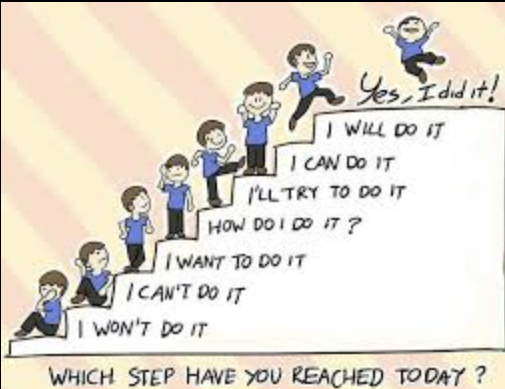Pushy Parents Vs Student Teachers
What is there not to love about parents? If you mention this to any teacher, they will likely come up with a very long list for you …
As a student teacher, you will be under a lot of pressure from your students as well as … ‘The Parents’ or, worse yet, ‘The Pushy Parents’. You experience a wave of self-doubt, anxiety, bewilderment, and anxiousness, and you start to second-guess your life’s purpose. If you’re a new teacher in this field, you probably can relate.

When I initially started my work as a teacher at a music school, I received the feared “I don’t think my child is progressing as well as he/she should” from a concerned parent on the second week of my beginner classes for harp. My immediate thoughts were that this was just another case of a “Helicopter Parent”. However, as a result of the reflective thinking and reflective practices I have been taught in my work-based learning module seminars, I have completely altered my perspective. In my classes, I can hear and feel the difference. This blog will reflect on this event, examining, clarifying, and analysing my approach in this scenario in accordance with Gibbs’ Reflective Cycle (Gibbs,1988).
‘Reflection is the magic ingredient which converts legal experience into education ‘
( EVANS, ADRIAN, 2017 p. 153–78)
Description: What Happened ?

As part of my placement, I have been teaching a class of seven young beginners how to play the harp. Despite the fact that I’ve been teaching for quite a while, I’ve never taught a group of individuals which I felt would be a fantastic chance to gain experience in. I quickly realised that it would be challenging as well. The first week was spent learning about the harp’s fundamentals. I really wanted to focus on technique at this point because it is so important when starting out. We began learning their first tune the following week. At this point, I saw that two of my students had solid footwork for beginning musicians, a strong ear for music, and the ability to memorise tunes. After this class, one of the parents approached me and shared their concerns about the child and her development. She was quite eager to enrol her in the intermediate course which I knew would be too difficult for her.
Feelings – What was I thinking?

As you can expect, I had a lot on my mind (all negative). I was concerned, confused, and self-conscious about my ability to educate. I had never dealt with a situation like this before, so my emotions were amplified because the parent was considering relocating her child somewhere else. What was I to do ? Should I be offended? What about my pupils development? It’s only the second lesson! It was only when I reflected on the experience using Gibbs Reflective Model that I decided to take control.
Evaluation – What was good / bad about this experience? What sense can you make of the situation?
I discovered a little bit about myself. To be honest, I think I was too focused on myself and my pride at the start. Rather than tailoring my classes to my students, I just wanted to go through my lesson plan and tick that box. We’re all guilty of it. We become too enthused and lose sight of why we do what we do. Who doesn’t? In my readings I came across ‘ I will associate new teachers with new ideas, fresh perspective and great enthusiasm instead of inexperience and insecurity ‘ (Dobbs, 2002, p.540-542 ). I felt much more positive and at ease after reading this journal. Hicks found that in a survey of 600 teachers 17% were unusually nervous and another 11% had suffered from nervous breakdowns (Coates, 1976, p. 160).
Conclusion – What else could you have done ?

I wanted to set things right in the best interests of my students. I offered two classes: one for total beginners and one for upper beginners. I brought this to my supervisor’s attention, and we sought to make it happen. We hit our first big obstacle! Timings- This did not satisfy everyone because the timings were now altered, and the classes had to be reduced 10 minutes shorter. On to plan B. We could create a complete beginner’s class and combine the students struggling in the intermediate level with my strong beginners. Problem number two: the students in the intermediate level were unhappy since they wanted to stay in that class. I was rushing around and anxious about these failed attempts at this point. We pondered it over again. Finally, we agreed that another intermediate / advanced student in my class might help. This enables me to split my time and delegate my attention more efficiently, which is far more beneficial for my pupils.
Action Plan

If I were in this situation again, I am confident that I would be able to manage myself better and more professionally. This experience has taught me to respond positively to feedback and to utilise it as a tool in my professional practice. In retrospect, I should have assessed my students more thoroughly at the start of the semester and customized my teachings accordingly. In the future, I’ll keep this in mind so that I don’t run into similar problems. I’m looking forward to better controlling my expectations as a student teacher—not everything will go as planned, and that’s okay! At the outset of each class, I question myself, “Am I ticking the box, or am I educating my students at their individual level?” What can I do to help my pupils further? Is there any other way that the parents might help their child at home?
As a student teacher who has researched a variety of texts about overcoming stress, Goepels’ particular chapter on how to establish a good relationship with parents has truly opened my eyes and ears (Goepel, 2016, p234 ). I try my best to have clear channels of communication with the parents, and I encourage their input and discussion of any problems.I urge others to use reflective methods in their daily work since the advantages to yourself and others are substantial.
Bibliography:
Coates, T.J and Carl E.T 1976: Teacher Anxiety: A Review with Recommendations, Review of Educational Research, vol. 46, no. 2, p. 160 JSTOR, Available-
https://shibbolethsp.jstor.org/startentityID=https%3A%2F%2Fqub.ac.uk%2Fshibboleth&dest=https://www.jstor.org/stable/1170037&site=jstor (Accessed 13th November 2022)
Dobbs, C.L 2002 : New Teacher Nerves. Journal of Adolescent & Adult Literacy, vol. 45, no6 p.540–42. JSTOR, Available –https://shibbolethsp.jstor.org/start?entityID=https%3A%2F%2Fqub.ac.uk%2Fshibboleth&dest=https://www.jstor.org/stable/40014742&site=jstor (Accessed 3rd Nov. 2022.)
Evans, A, 2017 : Reflective Practice: The Essence of Clinical Legal Education p. 156. JSTOR, Available- https://www.jstor.org/stable/j.ctt1q1crv4.12 (Accessed 9th Nov. 2022.)
Goepel,J, Childerhouse.H and Sharpe.S 2016: Inclusive Primary Teaching : A critical approach to equality and special educational needs and disability p.234 Available – https://eds-s-ebscohost-com.queens.ezp1.qub.ac.uk/eds/detail/detail?vid=0&sid=52dbd7b9-23c1-49de-b8b3-2bbfbba5b68a%40redis&bdata=JnNpdGU9ZWRzLWxpdmUmc2NvcGU9c2l0ZQ%3d%3d#AN=qub.b2140771x&db=cat02616a (Accessed 7th November 2022)
University of Cumbria ,2016 : Gibbs’ reflective cycle, Available – https://my.cumbria.ac.uk/media/MyCumbria/Documents/ReflectiveCycleGibbs.pdf (Accessed 16th November 2022.)
You May Also Like

Securing a Placement: An Observation in Timing and Luck
25 November 2022
Football: A Marketing Tug of War
25 November 2022
